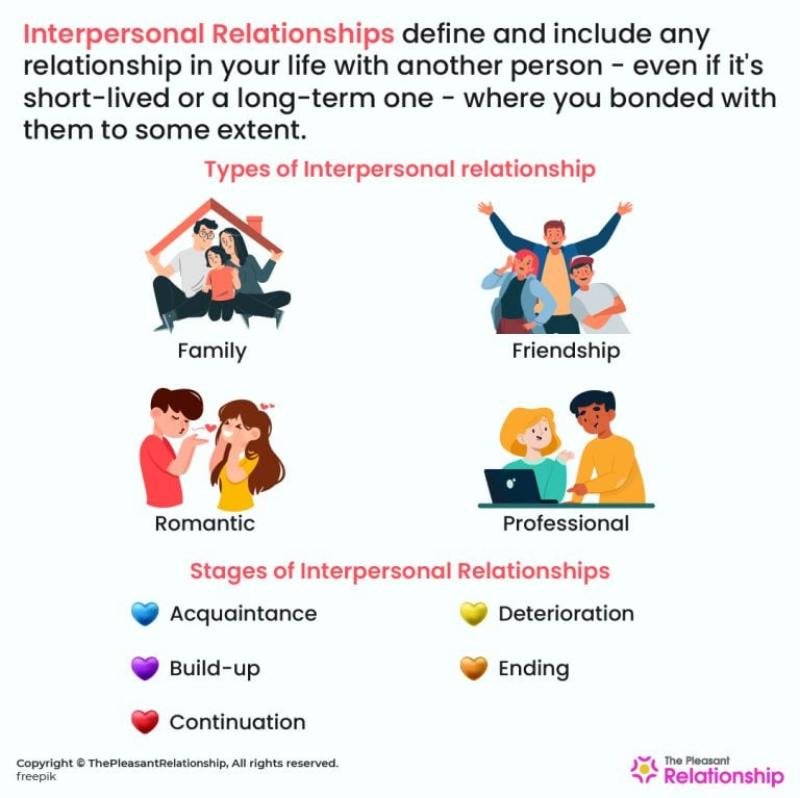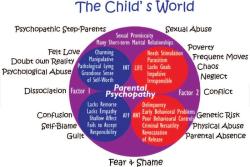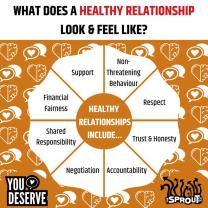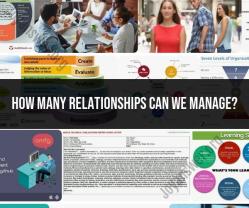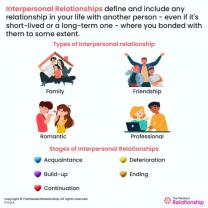What are examples of interpersonal relationships?
Interpersonal relationships encompass a wide range of connections between individuals. Here are some examples of interpersonal relationships:
Friendships:
- Close, personal connections between individuals who share common interests, values, and mutual affection.
Romantic Relationships:
- Intimate relationships between partners, characterized by emotional connection, shared experiences, and often a romantic or sexual component.
Family Relationships:
- Connections within a family unit, including relationships between parents and children, siblings, and extended family members.
Colleague Relationships:
- Professional connections between coworkers or colleagues within a workplace setting.
Teacher-Student Relationships:
- Interactions between educators and students in an academic environment, involving mentorship, guidance, and learning.
Mentor-Mentee Relationships:
- A more experienced individual (mentor) guiding and supporting the development of a less experienced individual (mentee).
Neighbor Relationships:
- Connections between individuals living in close proximity, involving neighborly interactions and support.
Acquaintanceships:
- Casual relationships between people who know each other but may not have a deep personal connection.
Online Relationships:
- Connections formed through online platforms, including friendships, romantic relationships, and professional networks.
Customer-Client Relationships:
- Interactions between service providers and their clients or customers, often involving professional rapport and customer satisfaction.
Team Relationships:
- Collaborative connections within a team or group setting, involving cooperation, communication, and shared goals.
Patient-Doctor Relationships:
- The professional connection between healthcare providers and their patients, built on trust, communication, and mutual respect.
Club or Hobby Group Relationships:
- Connections formed within clubs, hobby groups, or organizations where individuals share common interests or activities.
Therapist-Client Relationships:
- The professional connection between therapists or counselors and their clients, involving support and guidance for personal or emotional well-being.
Long-Distance Relationships:
- Romantic or close connections between individuals who are geographically separated, requiring communication and trust-building despite physical distance.
These examples highlight the diverse nature of interpersonal relationships, which can vary in intensity, purpose, and context. Each type of relationship involves unique dynamics and expectations, contributing to the richness and complexity of human social connections.
Yes, there are various types of interpersonal relationships, each with its own characteristics and dynamics. Here are some examples of different types of interpersonal relationships and instances or scenarios that exemplify them:
Family Relationships:
- Parent-Child Relationship: This is a primary and fundamental relationship that shapes an individual's development and well-being. Parents provide care, guidance, and emotional support, while children learn, grow, and develop their sense of identity.
Example: A parent helping their child with homework, spending quality time together, attending school events, or offering emotional support during challenging times.
- Sibling Relationship: This relationship is characterized by shared experiences, rivalry, and a unique bond shaped by growing up together. Siblings often provide companionship, support, and a sense of belonging.
Example: Siblings playing together, sharing secrets, supporting each other through personal struggles, or celebrating milestones together.
Friendship Relationships:
- Close Friendships: These are deep and enduring friendships characterized by mutual trust, emotional support, and shared interests. Close friends provide companionship, understanding, and a sense of connection.
Example: Friends confiding in each other, sharing personal experiences, offering support during difficult times, or celebrating together.
- Casual Friendships: These are less intimate friendships based on shared activities, common acquaintances, or occasional interactions. Casual friends provide companionship, enjoyment, and a sense of social connection.
Example: Friends catching up over coffee, attending social gatherings together, or engaging in shared activities like sports or hobbies.
Romantic Relationships:
- Romantic Partnerships: These are characterized by intimacy, emotional attachment, and romantic feelings. Romantic partners provide love, support, and a sense of shared commitment.
Example: Couples spending time together, sharing intimate conversations, celebrating anniversaries, or supporting each other's goals and dreams.
- Dating Relationships: These are exploratory relationships aimed at getting to know someone better and determining if there is potential for a deeper connection. Dating involves shared activities, communication, and initial assessments of compatibility.
Example: Couples going on dates, sharing personal information, and evaluating their emotional connection.
Professional Relationships:
- Colleague Relationships: These are interactions between coworkers based on shared work responsibilities, collaboration, and professional goals. Colleagues provide support, exchange ideas, and contribute to a shared work environment.
Example: Colleagues working on a team project, brainstorming solutions together, providing feedback and support, or attending professional events together.
- Mentor-Mentee Relationships: These are guidance-oriented relationships where an experienced person (mentor) provides support, knowledge, and advice to a less experienced individual (mentee). Mentors share their expertise, help mentees navigate challenges, and contribute to their professional growth.
Example: A mentor providing career advice to a mentee, sharing industry insights, offering feedback on work projects, or connecting them with professional opportunities.
Acquaintanceships:
- Casual Acquaintances: These are brief and superficial interactions with individuals encountered in everyday life, such as classmates, neighbors, or co-workers with limited interaction. Acquaintances provide basic greetings, engage in small talk, and contribute to a sense of social connection in a community.
Example: Greeting neighbors with a friendly wave, exchanging small talk with classmates, or engaging in casual conversations with coworkers in common areas.
